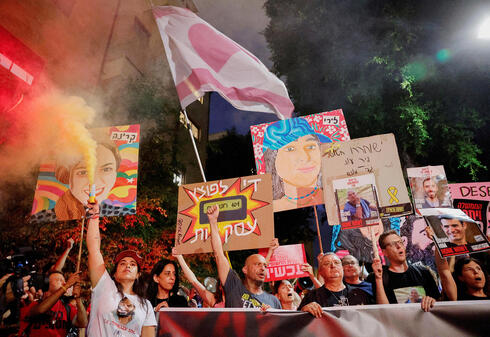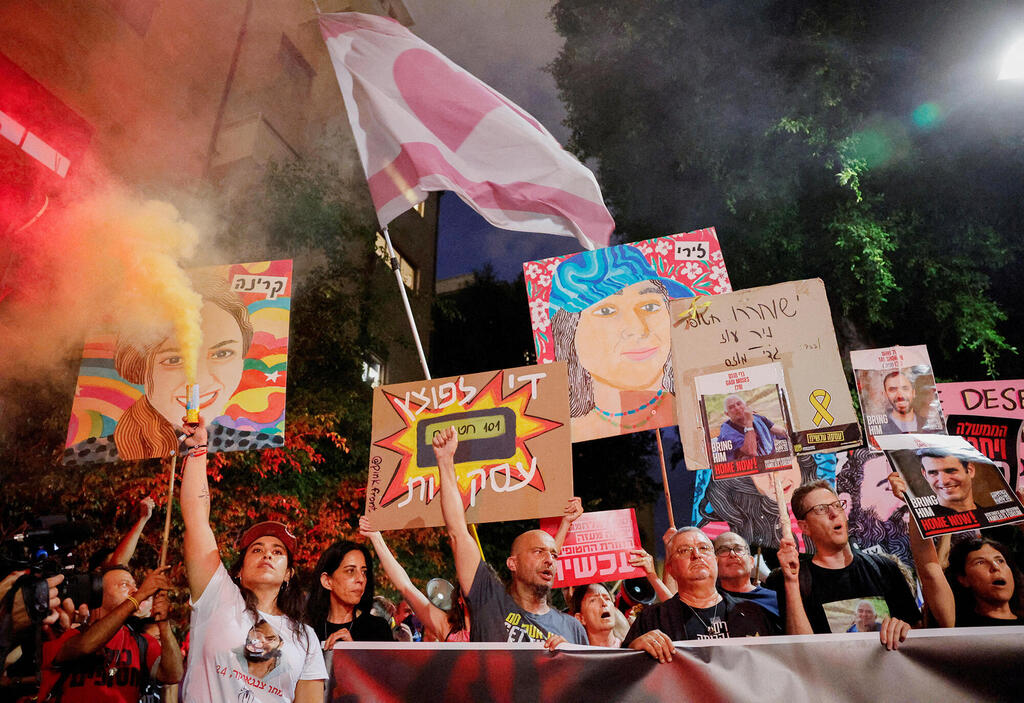
High-Tech Trendsetters
2024: A year marked by government incompetence and the strong resilience of Israeli citizens
As is customary at the beginning of each Jewish year, Calcalist reporters summarize the past year and identify the individuals, figures, and phenomena that have had the most significant impact on Israeli society and the economy.
The past Jewish year, which ends on Wednesday, was one of the most difficult and turbulent periods in the history of the State of Israel. Just days after the start of the year, on October 7, 2023, the citizens of Israel awoke to a horrific attack by Hamas terrorists who killed and raped approximately 1,400 individuals—including babies, women, elderly men, and young men—in their homes across cities and kibbutzim around the Gaza Strip, as well as at outdoor parties in nearby areas. Additionally, 250 civilians, soldiers, and female soldiers were kidnapped by these despicable terrorists, with some still held captive a year later.
This national trauma will remain one of the most formative events since the establishment of the state, with consequences that will affect Israeli society and its economy for many years to come. Beyond the mental and physical toll on thousands of Israelis, the subsequent military conflicts, including those in Gaza and against the terrorist organization Hezbollah in Lebanon, have shaken the local economy. Alongside the heavy expenses of war, there has been a noticeable slowdown in foreign investments, leading to a decline in the high-tech sector that typically drives the economy. Moreover, a deeper crisis has emerged, manifesting as a loss of trust among the majority of the public in the government, whose leaders were unable to prevent the disaster due to their focus on divisive political battles.
1 View gallery


Protesters demand the release of Israeli hostages in Gaza.
(Photo: REUTERS/Amir Cohen)
As is customary at the beginning of each Jewish year, Calcalist reporters summarize the past year and identify the individuals, figures, and phenomena that have had the most significant impact on Israeli society and the economy. The full list published ahead of Rosh Hashanah highlights a pervasive sense of abandonment felt by many citizens throughout the past year. This sentiment was exacerbated by the events of October 7 and the ongoing attempts by conservative and extreme right-wing elements within the government to alter the social fabric and democratic image of Israel. However, the resilience of civil society and its commitment to the communities that constitute Israel have also been revealed.
On October 7, the citizens of the country found themselves in a nightmarish scenario, witnessing white Toyota vehicles in the streets, burning tanks, and men, women, and children being forcibly taken away. It became evident that this marked a low point, further compounded by the realization that it was just the beginning of the state’s abandonment of its citizens. Since then, day after day, the country’s leaders have turned their backs, undermining the values that bind society together and fostering an unprecedented crisis of trust between different sectors and between citizens and state institutions.
Consequently, Prime Minister Benjamin Netanyahu has been recognized as the most influential figure of the past year. In the 12 months since October 7, 2023, he has promoted incitement while astonishingly evading responsibility for the greatest disaster the country has ever faced. When power is the sole objective, all means are deemed acceptable: the release of hostages, military deployment, and the normalization of extremist elements.
Following him on the list is Yahya Sinwar, who has led Israel into its most challenging period, alongside Joe Biden, who has supported Israel against its adversaries and ineffective leaders. Sinwar, the notorious terrorist leader of Hamas, orchestrated the brutal attack on communities near the Gaza Strip during the holiday of Simchat Torah, triggering the war in Gaza and the military escalation in the north. Biden, on the other hand, has provided critical military support to Israel and has emerged as a compassionate leader, prioritizing the nation's welfare over personal interests.
Calcalist’s list of 100 influential people for 2024 also highlights the contributions of Defense Minister Yoav Galant, who has stood in opposition to Netanyahu’s unyielding control over other ministers (despite his responsibility for the October 7 oversight). It also acknowledges the crucial role of Gali Baharav-Miara, Attorney General of Israel, who has had to consistently challenge the government's illogical actions—from dubious appointments to undermining the police.
A significant portion of this year's list is dedicated to those who volunteered selflessly to aid in the aftermath of October 7 and during the subsequent months. The families of the abducted, who tirelessly remind the nation's leaders of the values of brotherhood and compassion that seem to have been forgotten, have mobilized citizens to fight for a vision of a country where everyone looks out for one another. Thousands of volunteers responded to various initiatives, rescuing civilians, collecting and distributing humanitarian aid, connecting evacuees with hosts, locating missing persons, organizing transportation, gathering donations, cooking, and providing emotional support.
The soldiers, including the female fighters on the front lines in Gaza, are among the heroes of the year—ranging from those who bravely defended their bases at the Gaza border, some of whom remain kidnapped, to the thousands of women and reservists who have paused their lives for nearly a year to contribute to the war effort and the return of hostages. Other notable figures include the heads of local authorities in conflict zones. The leaders of local authorities, such as those in the Kibbutzim bordering Gaza and Sderot, exhibited remarkable leadership while their communities faced tragedy. As government ministries struggled to respond to the disaster, these local leaders acted quickly to restore some of the lost trust among citizens. In the north, the true heroes of this battered region are local authorities and community leaders, fighting fiercely for their communities in the face of abandonment and challenges from Hezbollah, dreaming of their restoration.













